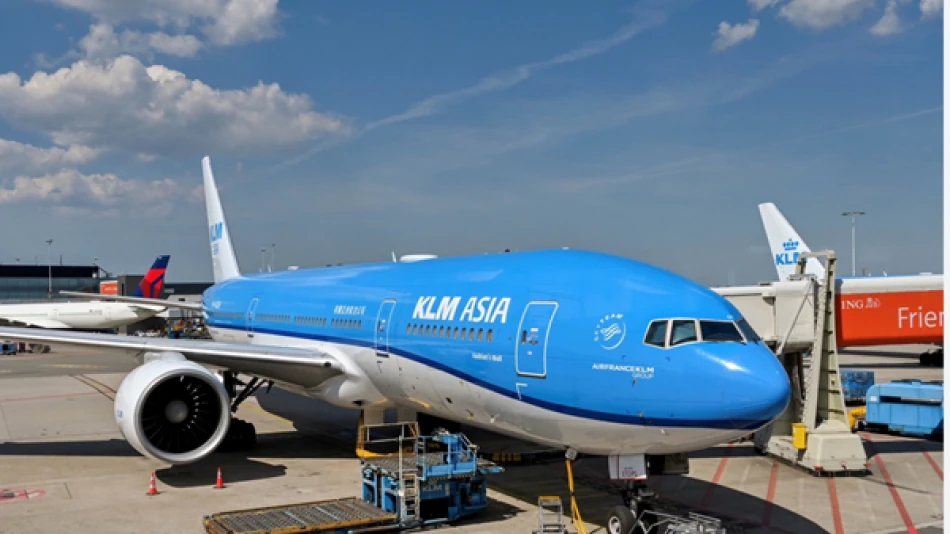
Leading European Airline Introduces Additional Baggage Fees
KLM Joins Budget Airlines in Charging for Hand Luggage Despite European Consumer Backlash
Dutch national carrier KLM has announced it will start charging passengers for carry-on baggage on select flights, abandoning a key differentiator from budget airlines and potentially signaling a broader industry shift toward unbundled pricing models. The move comes as European consumer groups intensify legal challenges against what they consider deceptive pricing practices, with 90% of surveyed passengers believing hand luggage should be included in ticket prices.
Full-Service Airlines Embrace the Budget Model
KLM's decision marks a significant departure from traditional full-service airline pricing, aligning the Dutch flag carrier with budget operators like Ryanair, EasyJet, Wizz Air, and Vueling that have charged for carry-on bags for years. This convergence suggests the airline industry is increasingly adopting the "unbundling" strategy that has proven highly profitable for low-cost carriers.
The timing is particularly notable as it coincides with the aviation industry's recovery from pandemic losses, where airlines are seeking new revenue streams to restore profitability. For KLM, this represents a fundamental shift in its value proposition to passengers who previously chose full-service carriers specifically to avoid such fees.
Consumer Resistance Meets Regulatory Pressure
A comprehensive European survey of 3,840 consumers across Belgium, Italy, Spain, and Portugal reveals widespread opposition to carry-on fees. The research demonstrates strong support for standardized baggage dimensions and backing for consumer protection organizations challenging what they term "illegal" charges.
Laura Cleys, spokesperson for Belgian consumer organization Testachats, argues these fees undermine passengers' ability to transparently compare ticket prices. She points to a European Court of Justice ruling requiring "reasonably sized" carry-on luggage to be included in base fares, suggesting airlines may be operating in legal gray areas.
The Economics of Baggage Fees
Current carry-on charges average €49.10 per booking, creating what consumer advocates describe as pricing opacity. Annual reports from major airlines indicate baggage fees generate hundreds of millions of euros yearly—a revenue stream that has become integral to their business models. For budget airlines, ancillary revenues including baggage fees often represent 20-30% of total income.
Legal Battles and Regulatory Reform
The consumer backlash has moved beyond surveys to courtrooms. Testachats filed a lawsuit against Ryanair in May 2024, alleging deceptive commercial practices. Ryanair maintains its policies are "transparent and fully compliant with EU law," highlighting the regulatory ambiguity surrounding these charges.
European Union institutions are currently negotiating comprehensive passenger rights reforms, including proposals allowing travelers to carry a small bag and handbag up to 7kg without additional fees. Belgian Mobility Minister Jean-Luc Crucke has submitted amendments to establish maximum size and weight limits for free carry-on luggage, though final approval awaits European Parliament voting.
Industry Implications and Market Dynamics
KLM's policy shift could accelerate similar moves by other full-service carriers, particularly as airlines face pressure to match competitors' base fares while maintaining profitability. This trend mirrors developments in the US market, where major carriers have largely resisted charging for carry-ons, suggesting regional differences in consumer tolerance and regulatory approaches.
For investors, the move represents KLM's commitment to maximizing ancillary revenues, potentially boosting Air France-KLM's financial performance. However, it also risks brand dilution and customer defection to airlines maintaining inclusive pricing.
The Future of Airline Pricing Transparency
The growing tension between airline revenue optimization and consumer protection reflects broader questions about pricing transparency in digital markets. As 71% of surveyed consumers consider baggage fees "misleading," the industry faces a credibility challenge that could invite stricter regulation.
The outcome of current EU negotiations will likely determine whether airlines can continue expanding unbundled pricing or must return to more inclusive fare structures. Consumer organizations are closely monitoring developments, maintaining pressure on European regulators to end what they characterize as "arbitrary fees" that compromise pricing transparency in continental aviation.
Most Viewed News

 Layla Al Mansoori
Layla Al Mansoori






